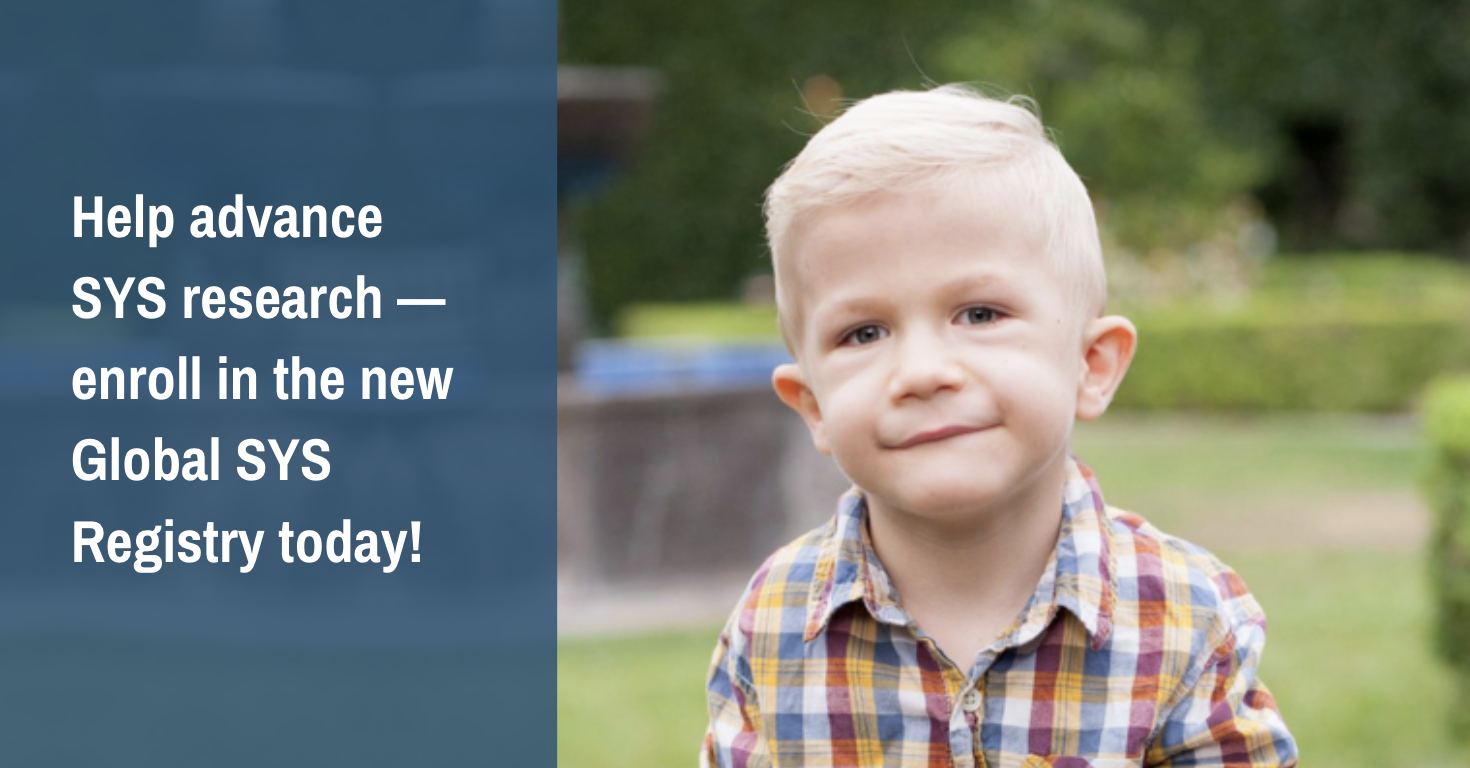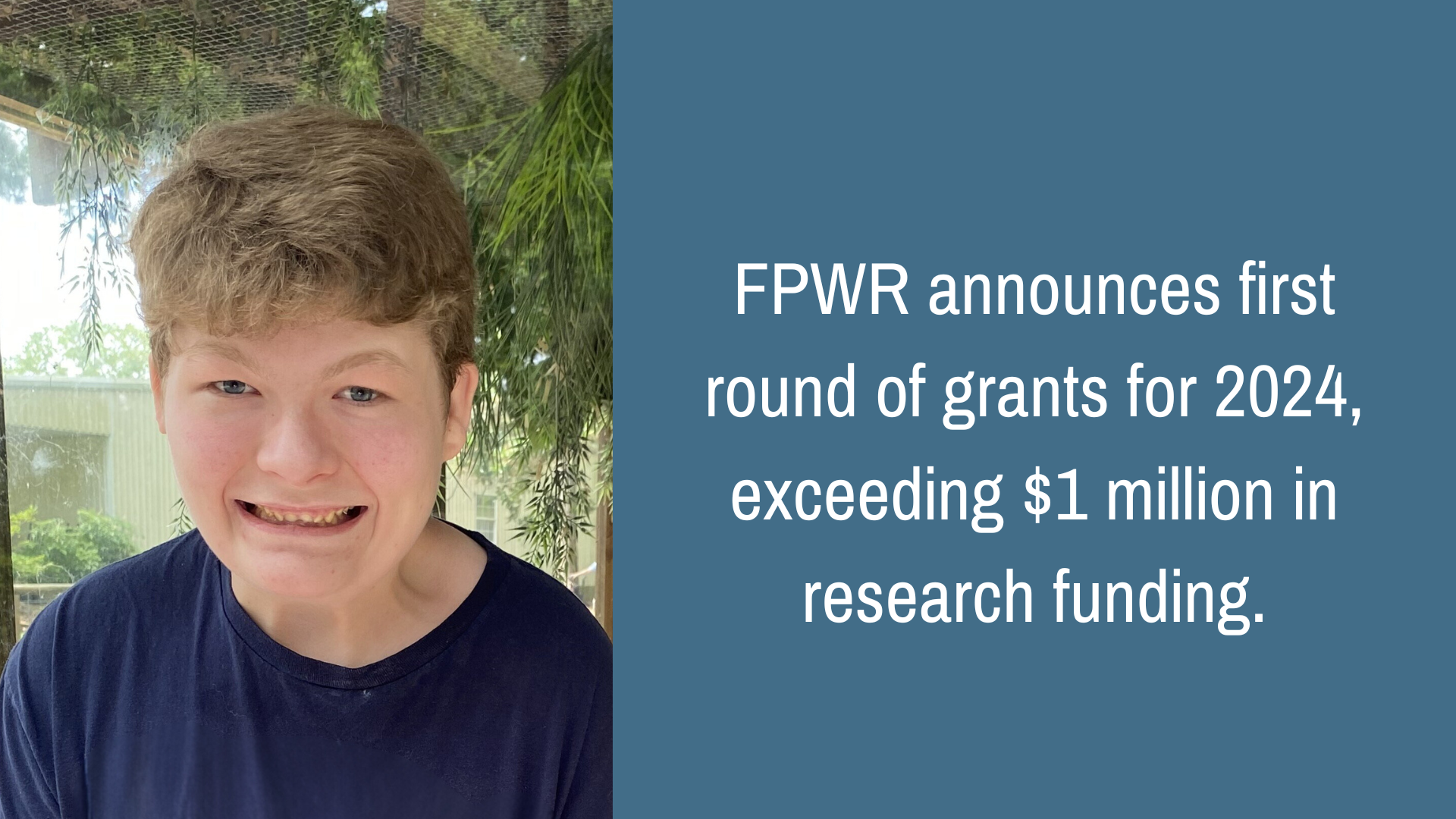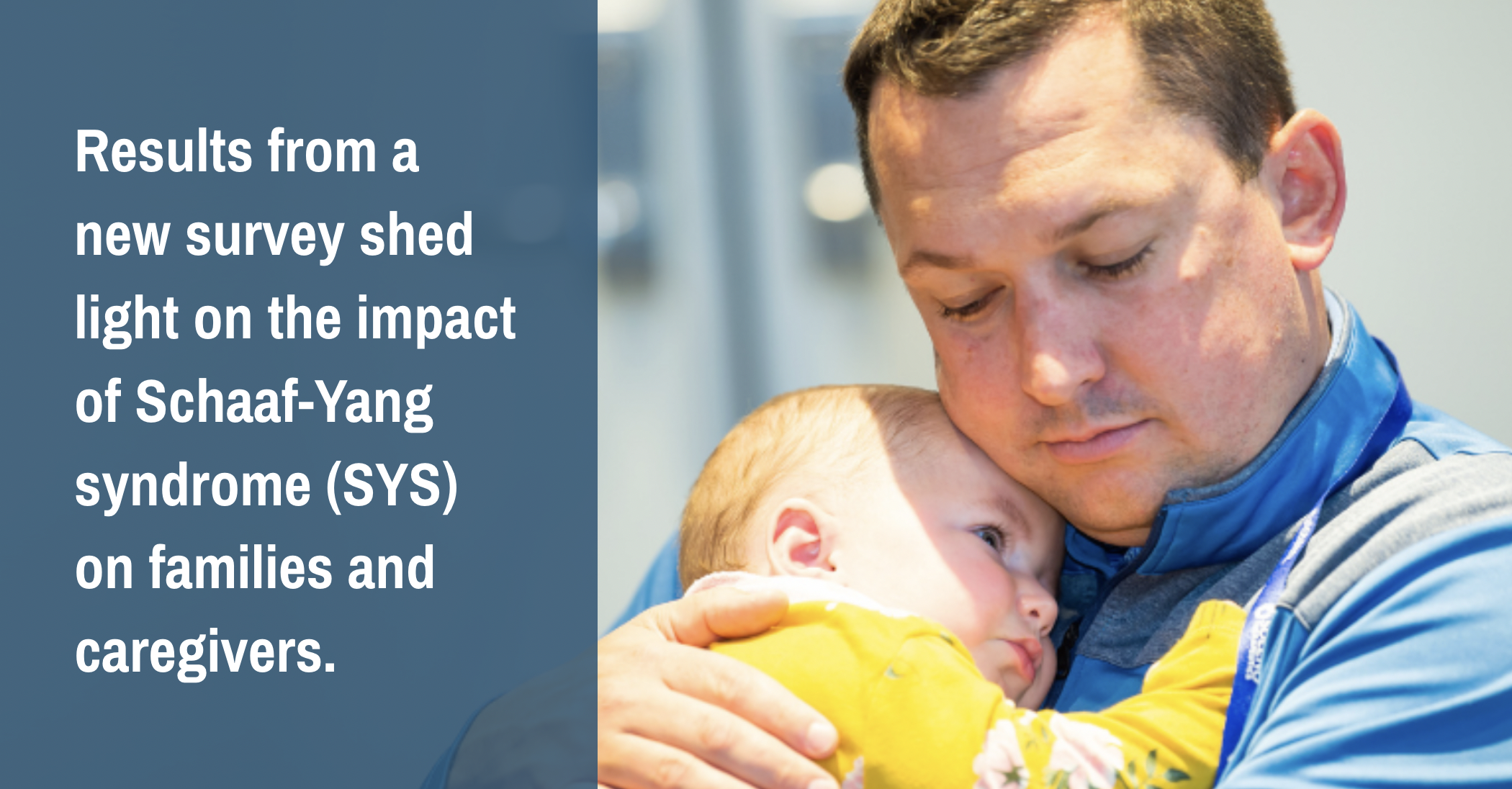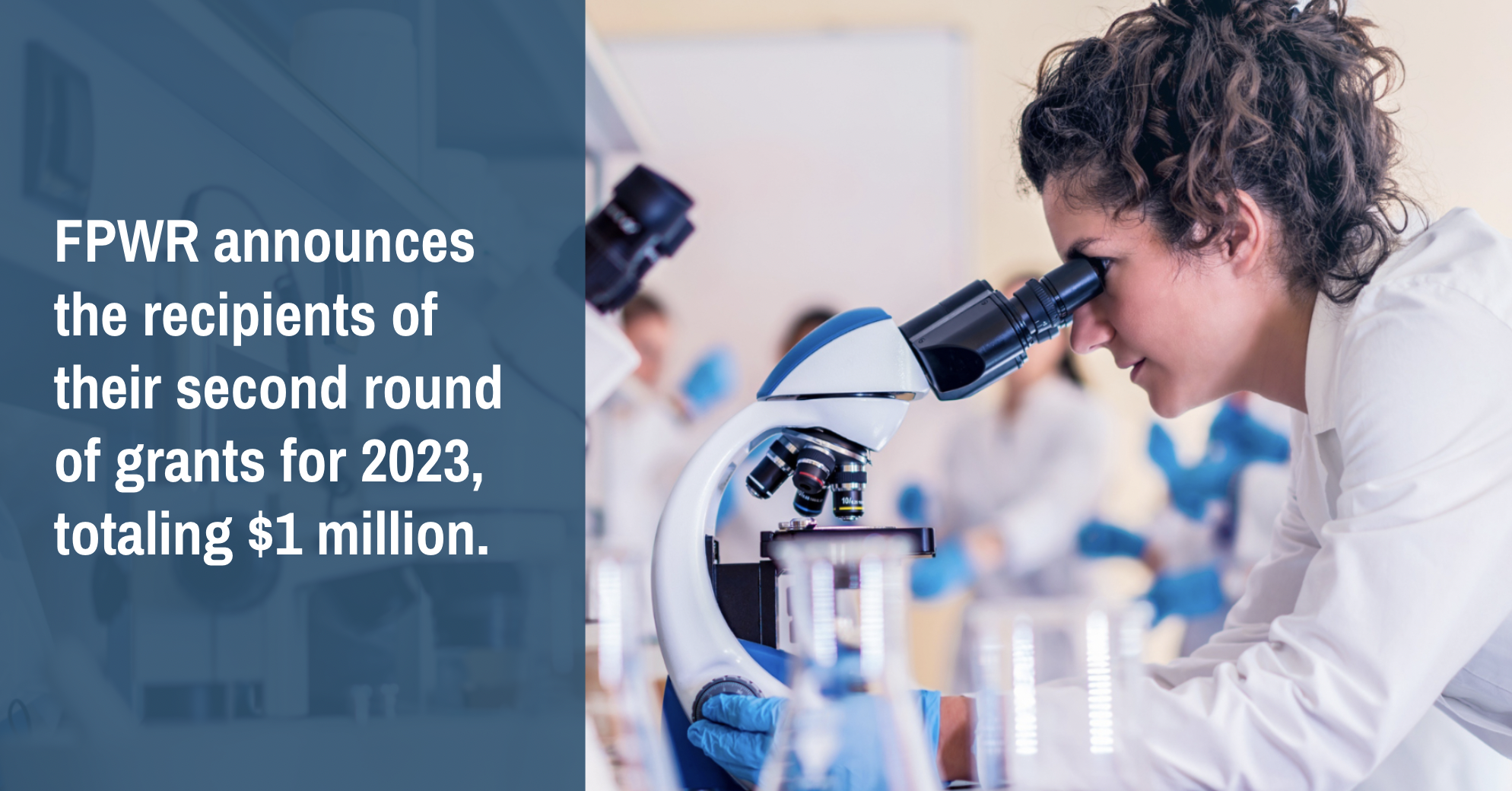Topics: SYS
FPWR is pleased to announce the launch of the Global Schaaf-Yang Syndrome Registry, an online registry for individuals with Schaaf-Yang syndrome (SYS) and their parents/caregivers.
The Foundation for Prader-Willi Research (FPWR) employs a "de-risking" funding strategy to accelerate the development of new treatments for Prader-Willi syndrome (PWS). We are here to take the risks, fund new ideas, and help build the resources that ...
Topics: Therapeutic Development, Research, SYS
We are pleased to announce the recipients of our second round of grants for 2024, totaling $1,681,781 in awards, as part of the Foundation for Prader-Willi Research’s (FPWR) ongoing commitment to advancing research in Prader-Willi syndrome (PWS) and ...
We are pleased to announce the recipients of our first round of grants for 2024, totaling more than $1,000,000 in awards, as part of the Foundation for Prader-Willi Research's (FPWR) ongoing commitment to advancing research in Prader-Willi (PWS) and ...
Schaaf-Yang syndrome (SYS) is an ultra-rare disorder that was first identified in 2013. It is caused by mutations in the MAGEL2 gene, a gene that is also deleted or inactivated in Prader-Willi syndrome (PWS). Because SYS is a relatively newly describ...
In this 85‑minute video, Dr. Christian Schaaf, medical director and department chair at the Institute of Human Genetics at the University of Heidelberg and visiting professor at the Baylor College of Medicine, explains our understanding of Schaaf-Yan...
We are pleased to announce the recipients of the second round of grants for 2023, totaling $1,000,000 in awards, as part of the Foundation for Prader-Willi Research's (FPWR) ongoing commitment to advancing research in Prader-Willi (PWS) and Schaaf-Ya...
The Foundation for Prader-Willi Research has partnered with COMBINEDBrain to establish a biorepository of blood and urine samples that will help speed treatments for people with PWS and other neurodevelopmental disorders. Biorepositories play a cruci...
Topics: PWS People, Volunteer, SYS
Drug development for new therapies begins with research and discovery. To treat PWS (Prader-Willi syndrome) and SYS (Schaaf-Yang syndrome), we need to understand the differences between individuals with these conditions and typical individuals, right...















